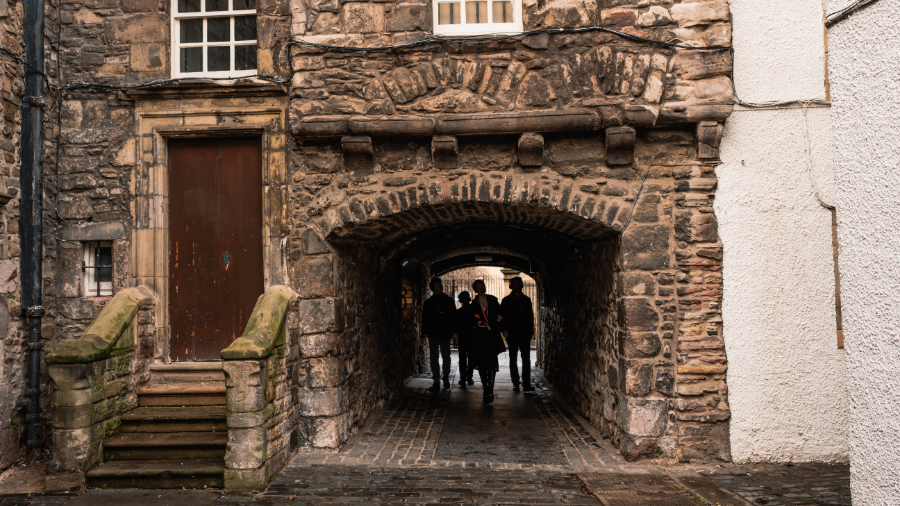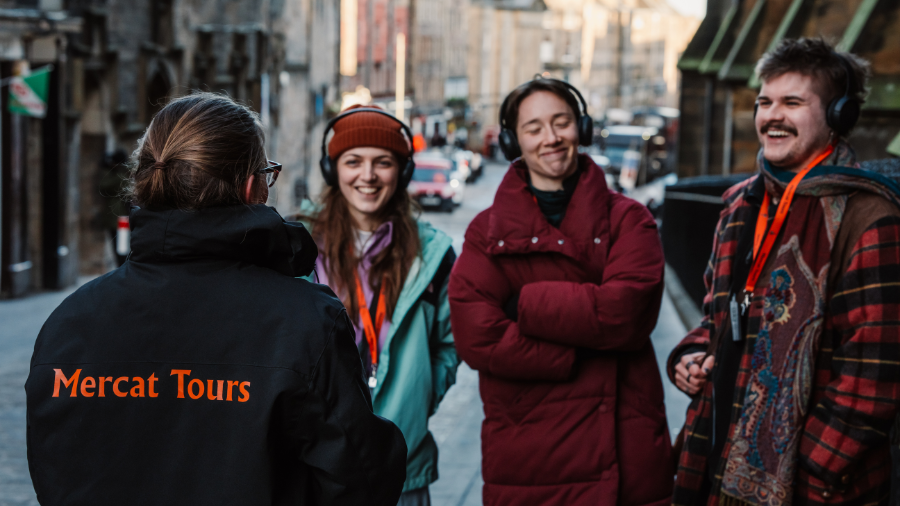Storytelling as a Human Connection
3rd Jan 2025As we begin recruiting new team members, we’re thinking about the power of storytelling and how it connects people and places, past and present. Mercat Storyteller, Stefanie, explores what storytelling means to her and how it has the power to form human connections.
My storytelling journey
I’ve realised that I’ve been telling stories since before I could even write. When I was little, I used to draw “comic books”, mostly about animals, and I made my gran fill in the speech bubbles.
Later, I switched from drawing to writing stories, and it’s still one of my favourite things to do.
In 2016, I came to Mercat Tours. I did my first shared walking tour five weeks after arriving in Edinburgh, and I knew literally nothing about this city other than those ghost stories.
They were my connection to my new home, my new job and to the people I met.

What does storytelling do for people in general?
I think it’s part of human nature, on a level as basic as developing a language or religion. Every culture tells stories as a way of educating their people, teaching right from wrong, but also to create a sense of group identity and heritage.
Cave paintings managed to do that without words, holy books do it by being essentially collections of stories. Fairytales teach morality and warn us about dangerous things, metaphorical and real (the evil witch vs. the very real wolf in the woods).
Local legends give us a sense of where we are from and who came before us.
Of course, escapism is a big part of it too – we get to live in a world that seems more exciting or pleasant than ours for the duration of the story.
In the modern age, we tell stories through literature, film, art, basically whatever we want, and it still has all the same effects.
What storytelling means to me, specifically
I find that the stories we tell at Mercat (especially the gruesome ones) put our first-world problems in perspective.
We all like to complain sometimes, but if we compare ourselves to the people who lived in the Blair Street Underground Vaults, or those who fell in the Battle of Flodden, or the ones who lived through the plague of 1645 without furlough or vaccines, we can be pretty grateful.
On a more personal note, history was one of my favourite subjects at school.

When we got to the Third Reich, WWII, and later the GDR, of course I understood intellectually that those had been bad times to be alive, but it only really hit home for me when I listened to my own grandparents who had lived through all of it.
Facts and numbers are one thing, but their personal stories made history real for me. I’m trying to have the same attitude with the Mercat stories, and make my visitors empathise with the human side of it all.
Growing with the stories you tell
Over the last nine years, I’ve gained a ton of knowledge through the stories we tell, and because of that I feel connected to Edinburgh, like I’ve earned my place here, in a way.
I’ve grown a lot as a person just by standing in front of all those strangers and informing and entertaining them for a couple of hours at a time.
Become part of the storytelling journey. Whether it’s as a Storyteller or as Support Team, every member of the Mercat family helps weave together the story of Edinburgh. Visit our vacancies page and join us today.

